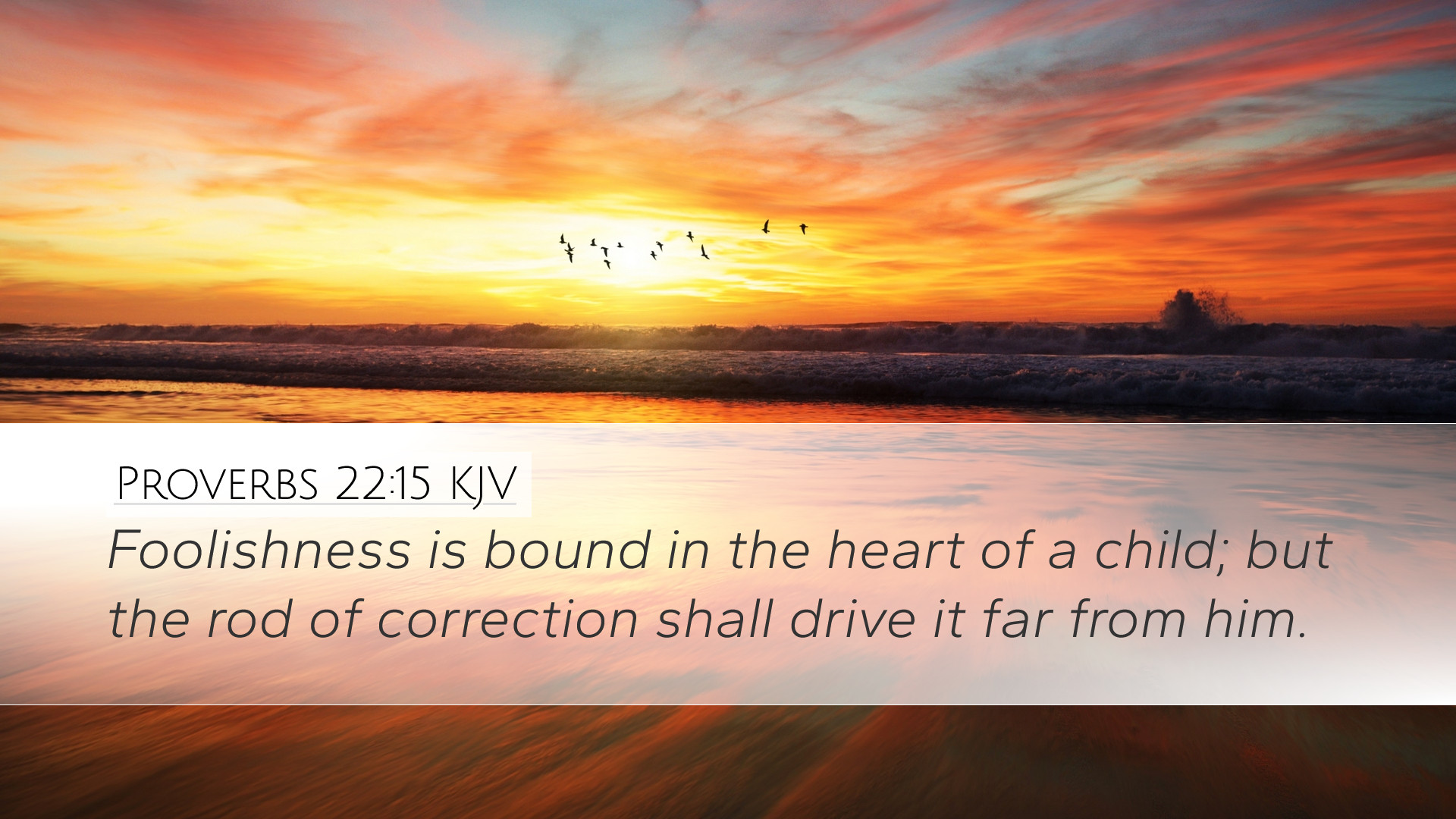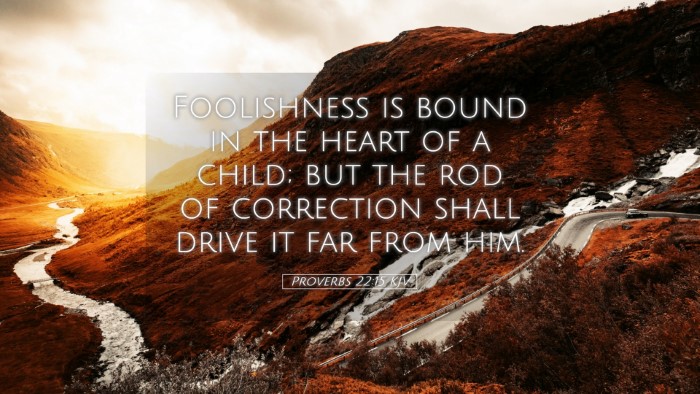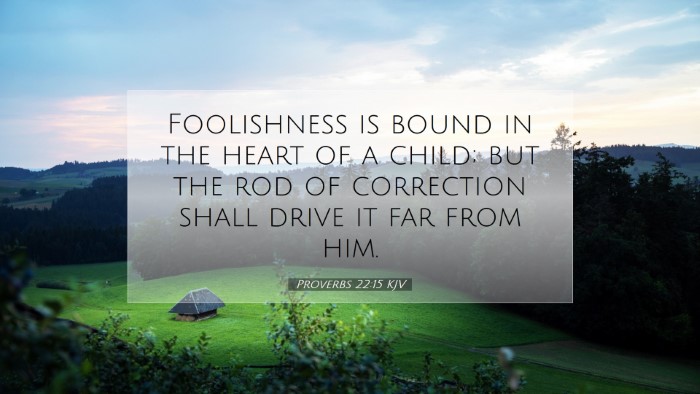Commentary on Proverbs 22:15
Proverbs 22:15 (KJV): "Foolishness is bound in the heart of a child; but the rod of correction shall drive it far from him."
Introduction
Proverbs 22:15 addresses the challenging nature of human folly, particularly as it pertains to children. This verse serves as a poignant reminder of the innate tendency toward foolishness that exists within youth. The duality of this passage—the stark acknowledgment of foolishness alongside the promise of correction—offers rich insights for pastoral care, parenting, and personal growth.
Analysis of Terms
This verse is divided into two main phrases, each highlighting different aspects of childhood and discipline.
- Foolishness is bound in the heart of a child: This phrase emphasizes the intrinsic folly present in every child. Matthew Henry explains that foolishness, in this context, refers to the natural inclination towards error and mischief, which is a part of human sinfulness from a young age.
- The rod of correction: The second part of the verse suggests a means to counteract this inherent folly. Albert Barnes notes that "the rod" symbolizes discipline and correction, which are vital to instilling wisdom and understanding in a child.
Theological Implications
This passage presents significant theological implications regarding the nature of mankind and divine parenting. Adam Clarke remarks that just as God corrects His children through trials and experiences, earthly parents are called to provide guidance and correction. This establishes a pattern of responsible stewardship in parenting that mirrors divine discipline.
The Nature of Foolishness
Foolishness, as described in Proverbs, is not merely a lack of knowledge; it reflects a predisposition to choose pathways of foolishness over wisdom. Henry describes this proclivity as "deeply rooted," indicating that children require guidance to navigate their inherent tendencies towards triviality. This notion echoes throughout biblical themes, reflecting humankind's need for redemption and divine wisdom.
The Role of Discipline
Discipline serves as the antidote to the folly described in the first half of the verse. Proverbs 23:13-14 encourages parents to use correction judiciously: "Withhold not correction from the child: for if thou beatest him with the rod, he shall not die." This principle underscores the necessity of structured guidance, reinforcing the idea that correction, while potentially harsh, ultimately aims for the child’s well-being and moral development.
Practical Applications
For pastors, educators, and Christian parents, this verse offers valuable insights into the development of moral character:
- Understanding the Nature of Children: Recognizing the inherent foolishness in children allows parents and leaders to approach discipline with patience, understanding that foolishness is a part of their growth rather than a personal affront.
- The Importance of Discipline: Establishing boundaries through consistent and loving discipline is crucial. It not only imparts wisdom but also fosters an environment where children can thrive morally and spiritually.
- Modeling Wisdom: Parents and mentors are called to model wise behavior, illustrating the kind of decision-making that counters foolishness. As Proverbs 1:7 states, "The fear of the Lord is the beginning of knowledge," guiding children towards respect for God and His commandments.
Examples from Scripture
Scripture presents numerous examples that echo the themes found in Proverbs 22:15. The story of King Solomon himself is illustrative; despite his wisdom, he allowed folly to enter his life through poor decisions. This serves as a warning of the subtleway in which foolishness can undermine one’s life and legacy.
Conclusion
In closing, Proverbs 22:15 offers profound truths about the reality of human nature and the necessity of corrective discipline. For those tasked with nurturing the next generation, this verse serves as both a warning and a guideline. It challenges us to acknowledge the foolishness bound in the hearts of children while simultaneously providing the necessary tools for moral and spiritual correction. In doing so, we reflect the compassionate and corrective nature of God Himself.


